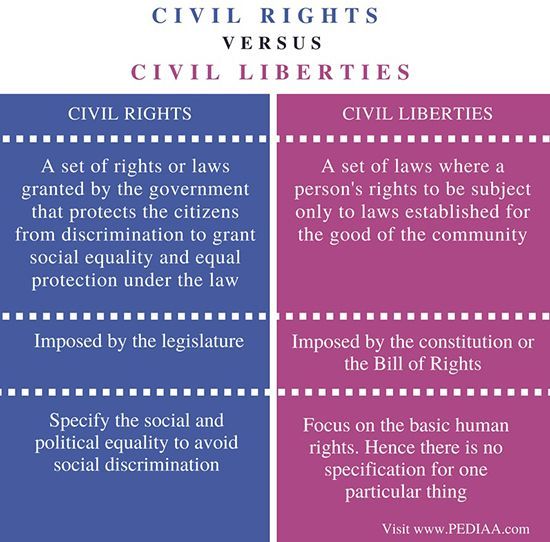
Rights in Civil Cases
What do crime shows like Brooklyn Nine-Nine, NCIS, Criminal Minds, and Law and Order all have in common? They all show court trials featuring juries for nearly every case. In reality, less than 1% of civil trials ever see a jury.
If you go to court with a civil case, your expectations and reality will most likely differ. Even though the Seventh Amendment guarantees a jury in civil cases, it's only for federal courts, not state civil trials.
To better understand your rights in civil cases and what to expect, continue reading this guide.
Difference Between Civil Rights and Civil Liberties
The best way to understand your rights in civil cases is to know what constitutes civil rights and civil liberties. These two terms are commonly confused with one another.

A civil right is an enforceable right or privilege for equality and freedom. The Bill of Rights does not protect these since they’re legal and can change for a case-by-case purpose. In other words, a person can lose some of their civil rights (most commonly seen with felons who can’t vote).
Civil liberty refers to your freedom protected by the Bill of Rights. Another way to think of political and civil liberty is your unalienable rights--a federal government can't take these away..
Civil Juries
As previously mentioned, the federal government reserves civil juries for federal courts, like the Supreme Court. And while this may seem odd for many Americans, it’s even stranger compared to the world.
The United States is one of the few countries that require a jury for civil cases. Most of Europe and Asia don’t use jury trials.
So why is America different?
Dating back to our time as a colonial extension of the British Empire, a jury trial helped establish our freedom from the British monarchy and implement a new government.
However, in 1787, many Founding Fathers looked down on the idea of juries. In previous civil cases, many juries favored debtors, which worried many businesses and landowners about the possibility of “nullification of contract,” which favors the debtors.
James Madison included civil juries in the Seventh Amendment to help debtors, like citizens fighting bad laws, corrupt businesses, and biased judges in federal court, while also hoping to avoid a second constitutional convention.
Can You Have a Jury?
So, after all this discussion about the civil juries and their history, it’s time to know when you can have a jury.
Whether or not you have access to trial by jury in a state civil case depends on your state's constitution. In Arkansas, you have a right to trial by jury for your civil case.

Not only do you have the option of trial by jury for civil lawsuits, but no one can forcibly take that decision from you. And as long as nine of the jurors agree on the verdict, the court determines that to be the final verdict. However, not all cases use civil juries if the court determined it unnecessary.
Conclusion
The law of the land is extensive and sometimes confusing. It’s good to learn about various aspects of the common law before needing a lawyer. Contact Hickey and Hull Law Partners in Northwest Arkansas if you need representation or assistance with civil courts.
